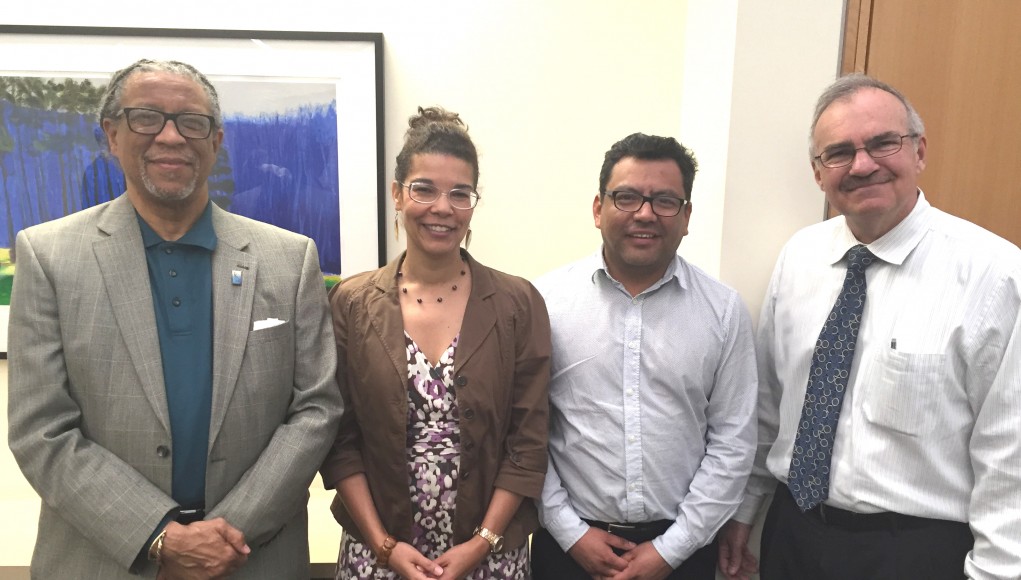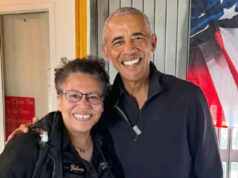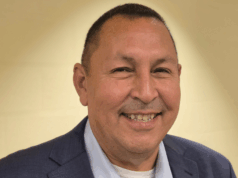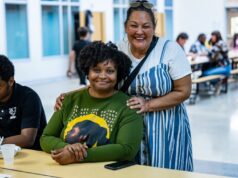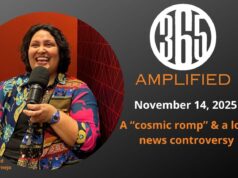“There’s a lot of brainpower here in Madison and a tradition of listening to the public. At the end of the day we need to be evolving our techniques and I think that Madison Gas & Electric has been respectful of the value of having a higher participation is good for everybody. It just raises the bar and it means that more collaboration, more engagement and more credibility is possible,” says Don Edwards, Chief Executive Officer and Principal of Justice and Sustainability Associates (JSA).
Edwards is considered one of the most deft mediators and civic engagement designers working today in the field of land use and development by international, federal, regional, state and local planning, transportation, parks and economic development agencies, corporations, universities, foundations and community-based organizations. He is back in Madison to facilitate the Madison Gas & Electric (MGE) Community Energy Workshop this evening at the Monona Terrace Community and Convention Center. More than 200 community members are expected to participate.
“This is the workshop that we once imagine closed to 16 months ago. The idea of having a workshop is to bring together a very diverse audience of people who represent lots of other different people in and around Madison,” Edwards says.
Yesterday, Edwards led a roundtable discussion and a Q&A with Madison’s diversity publications related to the MGE Community Energy Workshop that he will facilitate tonight.
“For the Community Energy Workshop, MGE needs to leave the meeting with some guidance on how people want to partner and how people want to assist them not only in the commitments they have made in their framework, but to grow it and build it out,” Edwards says. “I take the view that MGE says it wants to be a community energy service company and the only way that it can be a community energy service company is by having the community’s input.”

Edwards stresses that tonight’s workshop will be a unique and interesting type of event. “Besides being diverse, it’s going to require a lot of listening and exchanging with people who may or may not agree with you,” Edwards says. “We’ve designed it so every table is going to have somebody who is different than whom you might regularly work with or talk with. It’s also going to be able to capture not just what’s going on at each table, but what’s going on in the entire room.”
Going forward, MGE decided that it would need even more customer input, collaboration and participation to take advantage of transformative opportunities before them that would help them to meet its shared goals. Tonight’s Community Energy Workshop will be an important step in continuing the work MGE has done to deepen their conversations with the community. They’ve intentionally invited diverse people to the event who represent many different interests.
“You will be happy to see who is in the room for this event. Many people will be there that you know form the good work that they do in this community,” said Annette Miller, Emerging Markets and Community Development Director for MGE. “We have people who are advocates, people who represent the business community as CEOs, we have nonprofits like YWCA, Urban League, Boys and Girls Club, Centro Hispano, and Freedom Inc.”

MGE CEO Gary Wolter said that MGE had previously hosted 98 community conversations to find out exactly what the community wants. “We held several of them in Spanish and Hmong to include different diverse populations in our city,” Wolter said. “We wanted it so anybody could show up and tell us what was on their minds in terms of energy issues. We have had very good and very helpful feedback. In addition to that, we did customer surveys, focus groups, online input and we worked with community partners.”
More than 10 years ago, MGE held its first wide-reaching Community Energy Conversations to gather customer input. Those conversations shaped and informed the Energy 2015 Plan which included substantial commitments like eliminating coal burning at MGE’s downtown Madison power plant, increasing renewable energy by almost 12 times and reducing CO2 emissions by almost 20 percent from 2005 levels. “We did all of this despite what a growing population in Dane County,” Wolter said.
MGE’s current goals for Energy 2030 are to:
• Supply 30 percent of retail energy sales with renewable resources by 2030. As a milestone goal, they will supply 25 percent of retail energy sales with renewable resources by 2025.
• Increase energy efficiency and conservation as an important energy resource by working with customers to reduce growth in energy use.
• Work with customers to reduce CO2 emissions associated with meeting their customers’ energy needs 40 percent from 2005 levels by 2030.

Community Energy Workshop participants will be divided into small groups — tables of eight residents, each with a facilitator and someone recording responses. Community members will be able to leave with a printout on what was accomplished that very night.
The next step, Wolter says, will be engagement at a very diverse and decentralized level with the community.
“We take the input that we’ve had and the input we will get at the Community Energy Workshop and we’ll figure out a direction – how do we implement our Energy 2030 framework? We will need our entire community and we will work with our community to hit those goals on carbon and renewables and energy efficiency, etc.,” Wolter said. “We’ll be thinking about what partnerships and collaborations we have to develop throughout our community in order to reach those goals and in order to meet the feedback we’re getting from customers. What are their needs?
“We want to meet customers where they are,” Wolter added. “We’re going to be working with a lot of different components of our community and through many different partnerships we’re going to figure out what are the needs that the community thinks are important.”

